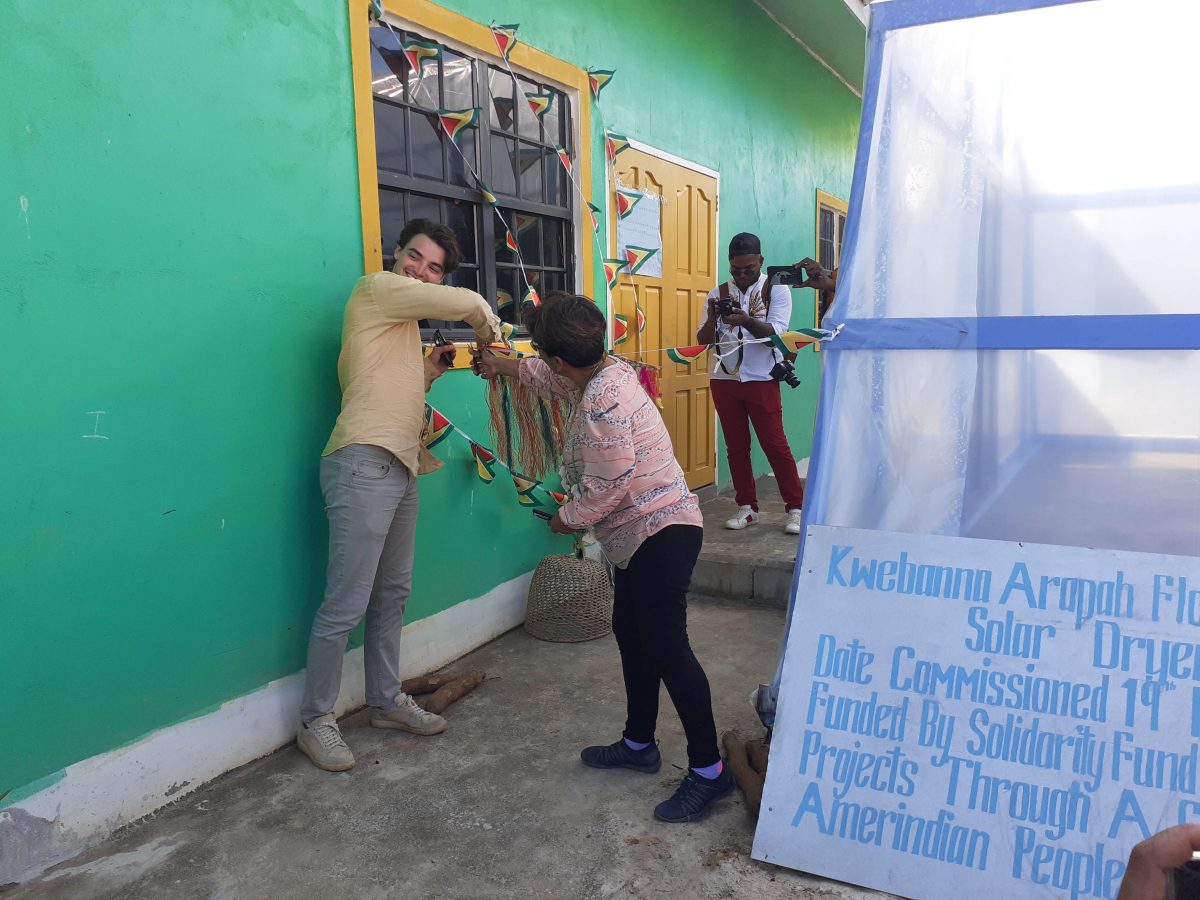In order to further aid in their production of cassava flour, the Amerindian Peoples Association (APA) through a $15 million fund which was gifted them by the French government have procured a solar dryer room for the community of Kwebanna, located in the Moruca sub-district of Barima-Waini, Region One.
The room, which was funded by the Solidarity Fund for Innovative Projects (SFIP) to the tune of $5,579,880, was commissioned last Sunday at the Kwebanna flour factory by members of the APA, the French government, and the community. On display at the commissioning were a number of delicacies and other pastries made from cassava flour including, dhal-puri, pizza, egg-ball, and cassava cheese cake.
During the commissioning ceremony, 67-year-old Fabian France, a community member, and the person who initiated the plan for the factory, explained how the idea came about and how the process of producing the flour works.
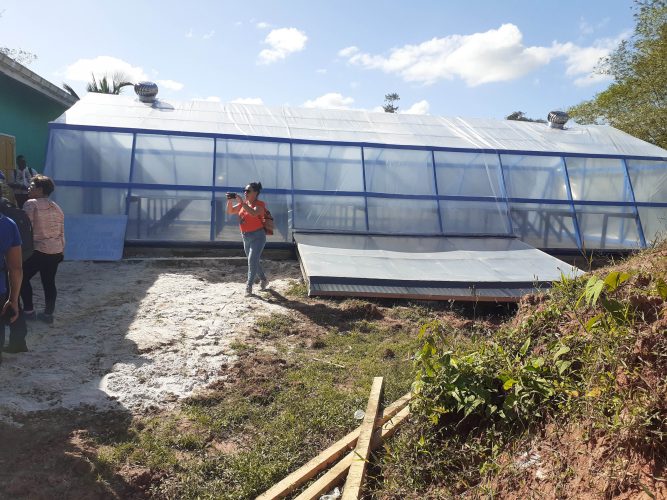
“One day I was in the farm and I was looking at the cassava farm and I was thinking about how could I really get market and get going with this cassava and I just decided to carry out an experiment and I chipped the sweet cassava, I put it to dry for couple of days and after then I grind it and it turn into flour,” he explained. “We clean the cassava, slice it, dry it and put it into the grinder and it go through that grinding process until it turns into powder, it goes through about six machines, the dryer, chipper, the mixer, the vibrator and more which I can’t recall right now.”
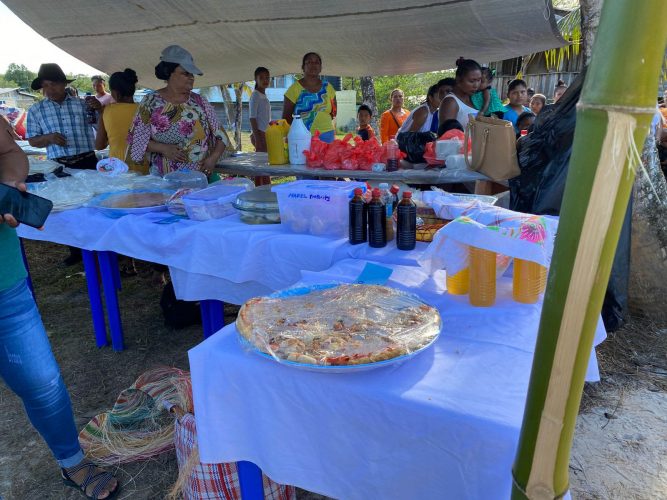
He said talks for the factory began in 2019 and from then to now they managed to construct a building with the help of the government, as well as acquire some machines which were imported from China to facilitate the various processes. Although they still need other equipment to have the factory fully up and running, they have been producing small quantities of flour for special occasions.
He added, “All of the farmers will be benefiting because they’ll supply the factory and also people will be employed to work in the factory… we still are awaiting some technological advice and training so that persons can be trained to properly operate the machines.”
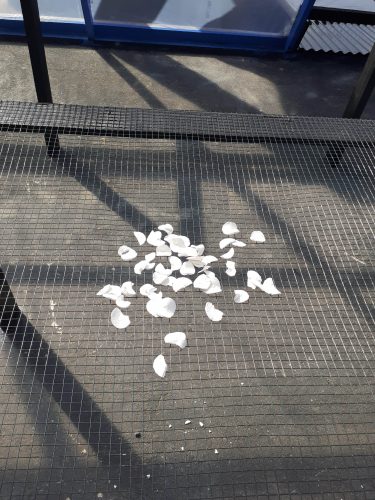 France, who has been living in the community for some 47 years posited that when the factory is up and running, they are hopeful of producing a large quantity of cassava flour for export.
France, who has been living in the community for some 47 years posited that when the factory is up and running, they are hopeful of producing a large quantity of cassava flour for export.
He further remarked that the entire project is about 85 percent complete with a generator to keep production going in the event of a power failure. Also, proper fencing is still needed to have a frequent, safe and secure production. He added that he also sees potential for ginger and turmeric processing at the factory.
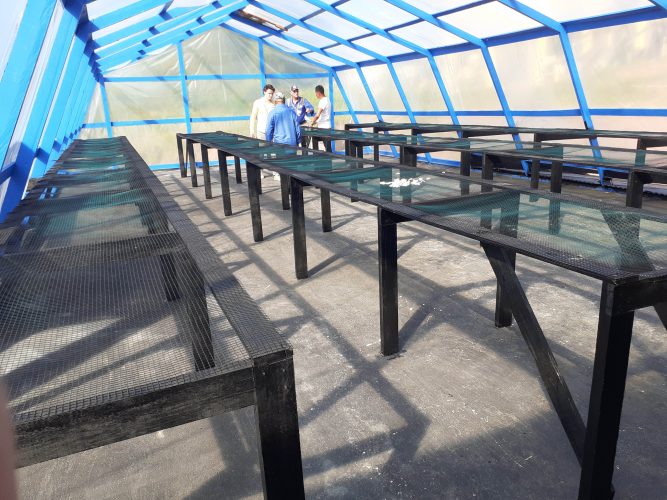
Moreover, like every other project which was funded through the APA, persons had to go undergo training in order to properly initiate and execute a plan. As such, one of Kwebanna’s youths, Rawle France, who was involved in the training said, “The APA did not just respond but they visited Kwebanna to hear and to learn more about this cassava flour factory. Later, they decide that they will work along with Kwebanna in helping us in this area. They requested that two or three persons to go and receive some training on project development and proposal writing and that was done.”
The young man further explained that the training involved working with members of University of Guyana Science Department. “…Training was done in Warapoka… and also… Santa Rosa… at the end of that training we were able to complete our training proposal which was then sent to the APA Executive Director Miss Jean La Rose. Later, that proposal was approved and the team then travelled to Georgetown and we uplifted that grant. While we were there in Georgetown we also had to seek advice and training from the Institute of Applied Science and Technology at the University of Guyana…,” he added.
Present at the commissioning were APA Executive Director Jean La Rose, French Honorary Consul Resident in Guyana Jean-Francois, and Resident Representative of the French Embassy in Guyana Pierre Gate. They all congratulated the residents of Kwebanna for their unique product and encouraged them to take advantage of the marketing sector. (Aviso Paul)
